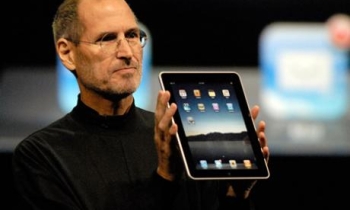THE chief of one of the world's biggest advertising groups has that leading media companies such as News Corp are on the verge of panic amid seismic shifts brought on by the internet.
WPP chief executive Martin Sorrell singled out the recent internet acquisition spree by Rupert Murdoch's media conglomerate as one sign that media groups are scrambling to catch up, saying News Corp, publisher of AustralianIT, has been making internet acquisitions "almost willy-nilly".
Mr Sorrell, head of the world's second-largest advertising and marketing company and one of the media sector's best known prognosticators, told attendees at a internet Advertising Bureau conference that declining circulation, viewership and revenue figures had big media companies running scared.
"I think there's a certain amount of panic among media owners," he said. "Most of these companies, ours included I suppose, are run by 50- or 60-year-olds who have trouble getting it, and who really don't want to see change on their watch."
After Murdoch convened a group of his top managers to plot a new approach to the internet earlier this year, News Corp has spent about $US1.3 billion to buy MySpace.com owner Intermix Media, gaming web network IGN Entertainment, and online sports company Scout Media.
Some US analysts have said they have yet to see a coherent strategy in News Corp's acquisitions.
UK satellite broadcaster BSkyB - 37 per cent owned by News Corp, with Mr Murdoch as chairman and his son James as chief executive - has also agreed to buy broadband provider Easynet for £211 million, with an eye toward developing a hybrid broadband delivery platform.
Mr Sorrell's warning that print and television are steadily losing ground to their new media rivals was tempered by the influential views of Microsoft chairman Bill Gates, who said such distinctions would soon disappear.
"The notion of internet versus non-internet advertising - over the next decade that notion will be obsolete," he said at the conference.
Mr Gates said the future lies in all forms of content - from movies to TV shows to news - being distributed in a customised form online, sponsored in part by advertising that will zero in on specific demographics and interest groups.
"We're taking it to a new level, for advertisers to target specific audiences," he said. Microsoft's new paid search system allows advertisers to indicate whom they want to reach based on criteria such as geographic location and gender, in addition to the keyword-based ads offered by companies like Google.
The new MSN Advertising Centre is due to launch in the United States next month after being tested in pilot markets.









